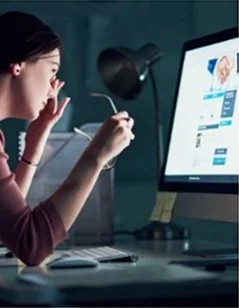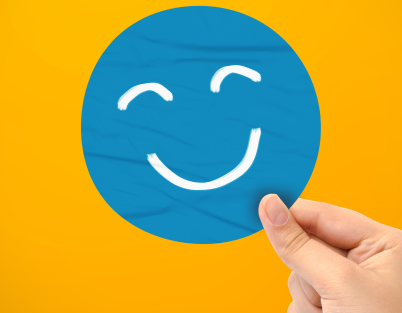Screens are everywhere in modern life, from smartphones and tablets to laptop computers and televisions. While these gadgets have numerous advantages, such as connecting us to friends and family, providing access to information, and providing entertainment, they can also be harmful to our health, especially when used before night. In this post, we'll look at why you should avoid screens before bed and suggest some sleep-improvement tips.
The Sleep Science
Before delving into the effects of screens on sleep, it's critical to first grasp the science of sleep. Sleep is a complex process that is necessary for both our physical and mental wellness. The body repairs and regenerates tissues, boosts the immune system, and consolidates memories when sleeping. Sleep deprivation has been related to a variety of health issues, including obesity, diabetes, heart disease, and depression.
The Circadian Cycle
The circadian rhythm, which is the body's inherent internal clock that regulates our sleep-wake cycle, is an important part of sleep. The circadian rhythm, which is controlled by external stimuli such as light and dark, helps us feel awake during the day and tired at night. Bright light exposure in the morning can assist reset the circadian cycle and increase sleep quality, whereas bright light exposure at night can disrupt the rhythm and interfere with sleep.
Also Read: If Someone is Having a Stroke: 3 Things to do and 3 Things Not to do
Screens' Influence on Sleep
Screens emit blue light, which can disrupt the circadian rhythm and make falling asleep more difficult. Blue light inhibits the generation of melatonin, a hormone that aids in sleep regulation, and can boost alertness and cognitive activity. Blue light exposure at night can also cause sleep to be delayed and the amount of time spent in deep sleep to be reduced.
Screens can be mentally stimulating as well as physically stimulating, keeping the brain engaged and making it difficult to wind down before bed. Checking emails, scrolling through social media, or watching a thrilling show can all lead to hyperarousal, which can disrupt sleep.
Sleep Improvement Suggestions
There are many actions you may do to improve the quality of your sleep and limit the effect of screens on your sleep if you're having problems napping.
- Establish a nightly ritual: A bedtime routine can assist communicate to your body that it's time to wind down and prepare for sleep. This practise could involve things like reading a book, having a warm bath, or listening to soothing music.
- Set screen boundaries: Try to avoid screens for at least an hour before going to bed, and think about setting screen boundaries during the day. Turning off notifications, limiting screen usage to specified hours, or taking regular breaks from displays are all examples.
- Avoid using devices in the bedroom: Using screens in the bedroom can disturb the relationship between the bedroom and sleep. To lessen the impact of blue light in the bedroom, consider using a dimmer screen or employing night mode.
- Consider other sleep aids: If you're still having trouble sleeping despite these steps, other sleep aids may be beneficial. These could include herbal remedies like valerian root or chamomile, as well as over-the-counter sleep aids like melatonin.
- Maintaining a consistent sleep pattern might also aid in the improvement of sleep quality. To assist manage your circadian rhythm, try to go to bed and wake up at the same time every day, especially on weekends. This can help you sleep better and sleep longer, making it simpler to wake up feeling refreshed and energised.
- Consider building a screen-free bedroom: While avoiding screens before night is vital, some experts recommend going a step further and constructing a screen-free bedroom. This entails removing all screens from the bedroom, including TVs, laptops, and smartphones, and using the space just for sleeping and relaxing. You can help educate your brain to link the bedroom with deep sleep by creating a screen-free refuge, making it simpler to fall and stay asleep throughout the night.
Also Read: Hacking Your Health: How the Right Food Cracks the Code to Your Body’s Happiness
Conclusive Words
Screens are a part of modern life, but their impact on sleep can be enormous. Blue light and mental activity can disrupt the circadian cycle and make it difficult to sleep. If you're having trouble sleeping, consider applying some of the strategies indicated above to improve your sleep hygiene and lessen the impact of screens on your sleep. Create a bedtime ritual, set screen boundaries, use screen filters, keep screens out of the bedroom, and consider other sleep aids to help support your body's natural sleep processes and promote healthier sleep.





.webp)


%20(1).png)
.png)
%20(1).png)


%20(1).png)




%201.png)
